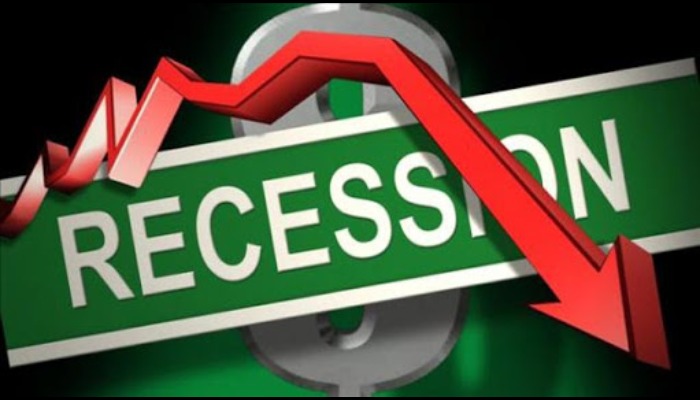Nigeria has sadly again joined the league of countries in recession. All hands must be on deck towards working our way out. The so-called years of economic growth been talked about in the country for many years has little or no impact on many Nigerians . It has often been described by many analysts as jobless growth. All we need is inclusive growth.
However, It has been widely forecasted by many world economic bodies; such as the World Bank and the IMF that many countries of the world will experience an economic recession due to the effects of the coronavirus (COVID-19) pandemic.
Recession is measured in terms of two successive quarters of economic growth contraction. On the other hand, economic growth is an increase in the production of goods and services in an economy over a period of time .
In economics, a recession is a business cycle contraction when there is a general decline in economic activity. In other words, recession is a period of temporary economic decline during which trade and industrial activity are reduced, generally identified by a fall in Gross Domestic Product (GDP) in two successive quarters.
This is not a time for the “blame game” by the government . It is equally not a time for “politicking” by politicians. It is a time to wake up and do the needful.
I will advise the government to consider the Keynesian model in fighting the recession. Professor John Maynard Keynes, (1883 –1946), was a British economist, whose ideas fundamentally changed the theory and practice of macroeconomics and the economic policies of governments.
During the Great Depression of the 1930s, Keynes spearheaded a revolution in economic thinking, challenging the ideas of neoclassical economics. He argued that aggregate demand (total spending in the economy) determined the overall level of economic activity, and that inadequate aggregate demand could lead to prolonged periods of high unemployment. Keynes advocated the use of fiscal and monetary policies to mitigate the adverse effects of economic recessions and depressions.
The government should, however, embark on expansionary fiscal policy in order to increase the level of aggregate demand, through either increase in government spending on capital budget or reductions in tax rates.
The Central Bank should also embark on expansionary monetary policy in order to increase money supply, increase quantity of loans, reduce interest rates and shift aggregate demand to the right.
May God bless Nigeria.
Nurudeen Dauda, Kaduna. ([email protected])

 Join Daily Trust WhatsApp Community For Quick Access To News and Happenings Around You.
Join Daily Trust WhatsApp Community For Quick Access To News and Happenings Around You.

